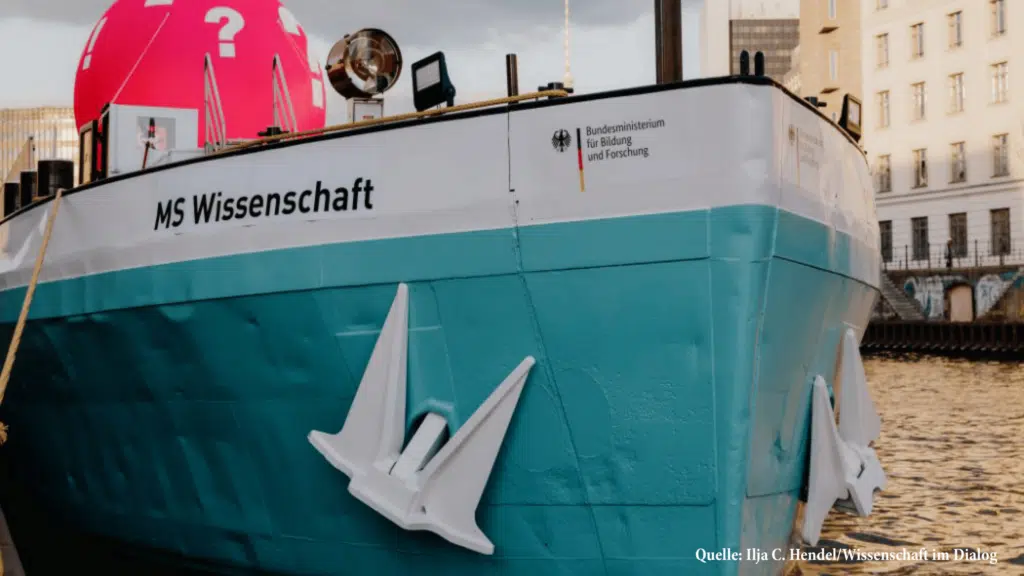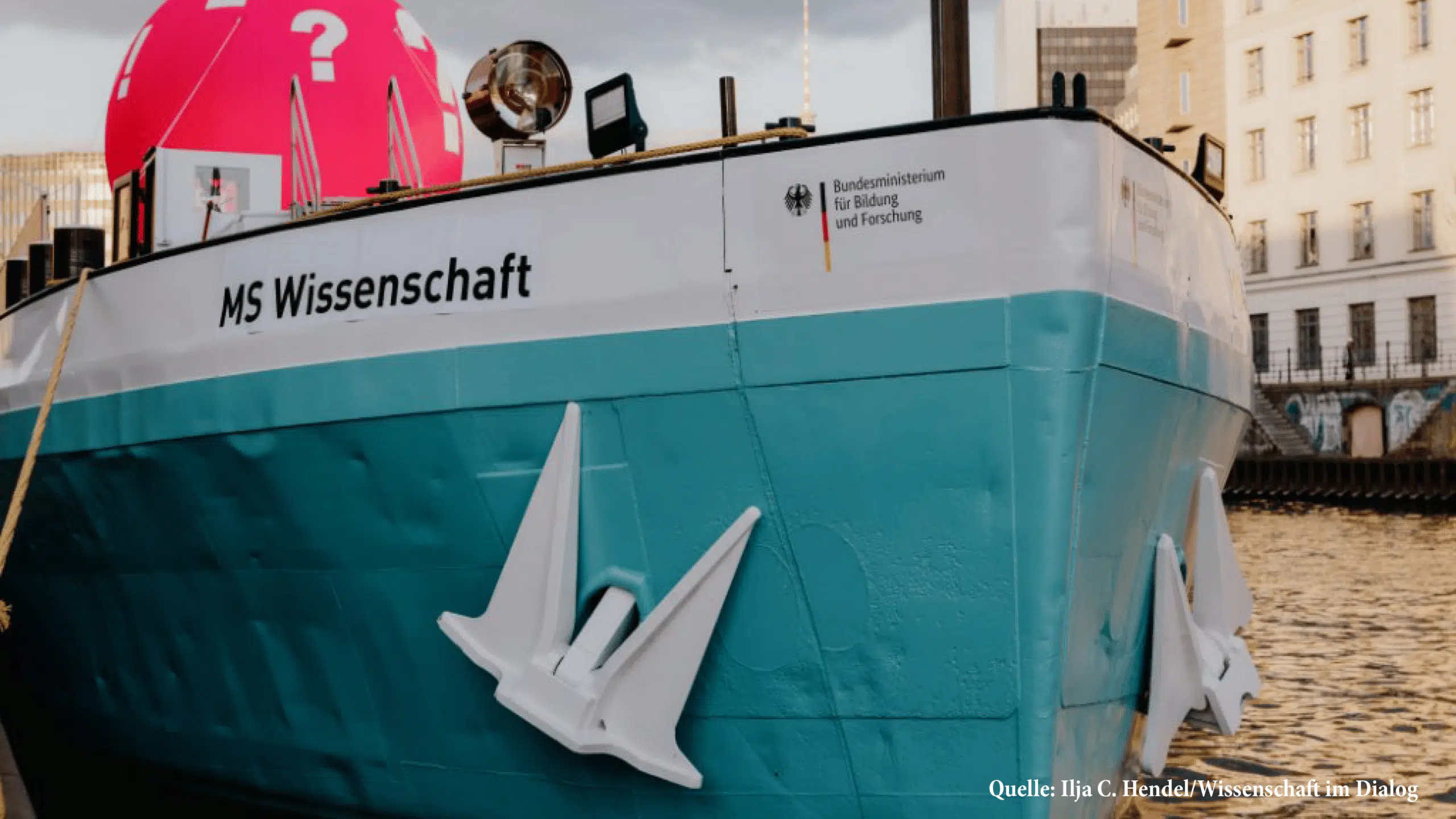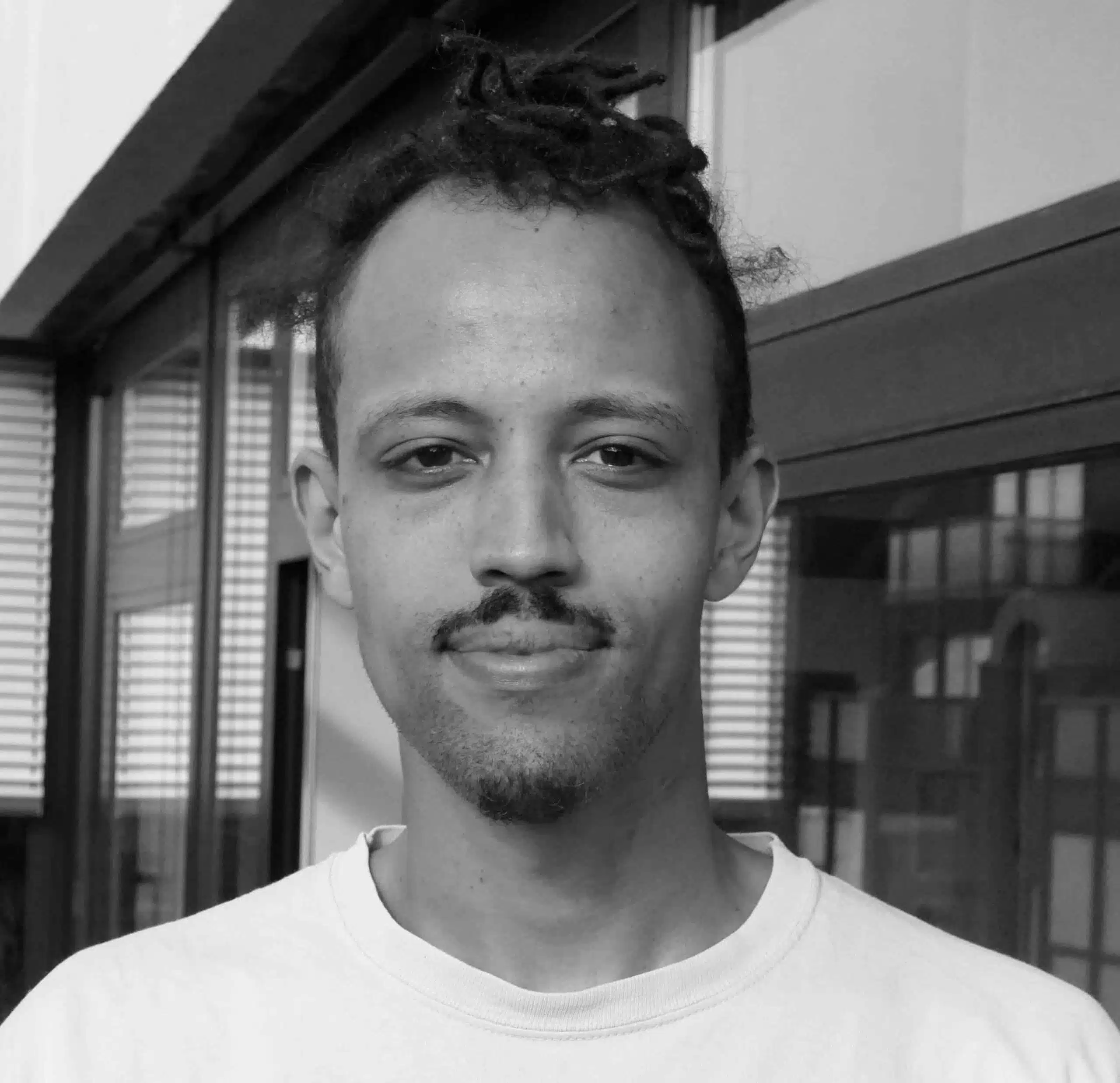The Collaborative Research Center (CRC) “Future Rural Africa” is one of several exhibitors on the “MS Wissenschaft”, a floating science centre on a former transportation ship measuring over a hundred meters in length, with interactive exhibits on socially relevant topics. Initiated by the German Federal Ministry of Education and Research in collaboration with various partner institutions including “Deutsche Forschungsgemeinschaft (DFG)”, the aim of the project is to increase the general public’s awareness for the social relevance of science at large and to further the understanding of scientific processes. Under the motto “Science Year 2022 – Participate”, the project seeks to answer the following questions: ‘what are the pressing issues of the future?’ and ‘how does science work?’. These questions are at the very core of “Future Rural Africa’s” research.
As former CRC spokesperson Prof. Detlef Müller-Mahn explains: “it is our goal to gain a better understanding of the actors and mechanisms of the future making process.” Regarding this process, “Future Rural Africa” wants to find out which opportunities and risks are foreseeable today, how different conceptions of ‘the good life’ are negotiated politically, and how the trajectory of future processes is affected by actions in the present.
“Government representatives primarily focus on jobs and money, small scale farmers tend to relate future-making to the livelihoods of their children. These outlooks are not necessarily incompatible, however they show the varying expectations on the future-making process.”
Prof. Dr. Müller-Mahn
Consisting of three parts, the CRC’s exhibition on board includes maps, video documents and more to give participants an idea of the different outlooks on the future postulated by various regional stakeholders, small scale farmers or government-representatives, for instance. Future-making inevitably involves taking risks when contrasting perspectives on the process collide. With the effects of climate change and the intensification of agriculture and infrastructure on the one hand, and aspirations in natural conservation on the other hand, conceptions of the future might differ drastically depending on the perspective. These divergences are at the core of the CRC’s focus as we seek to identify and examine the dynamics and practices that reflect these varying visions of the future. “Future Rural Africa” also want to inform contemporary decisions preparing the ground for the processes that shape future conditions. Conveying that future making inevitably involves taking risks when contrasting perspectives on the process collide is the goal of this hands-on and immersive exhibit.
Visitors of the “MS Wissenschaft” also get to know some of the manyfold methodologies employed throughout the CRC. The various projects combine approaches from the social and natural sciences. These are quite diverse and include a wide variety from different disciplines, such as stakeholder interviews, satellite mapping, participatory observation, soil analysis, and more. For more information on the projects, their outlook and methodologies click here.
If you would like to visit the CRC’s expo, the ”MS Wissenschaft’s” voyage continues until early October 2022. The next stops are Frankfurt and Linz. For more information on the ship’s next stations check the “MS Wissenschaft” website.
For more on Future Rural Africa’s exhibit aboard the “MS Wissenschaft” read this interview with Prof. Dr. Müler-Mahn, former CRC spokesperson in “DFG Magazin”.



